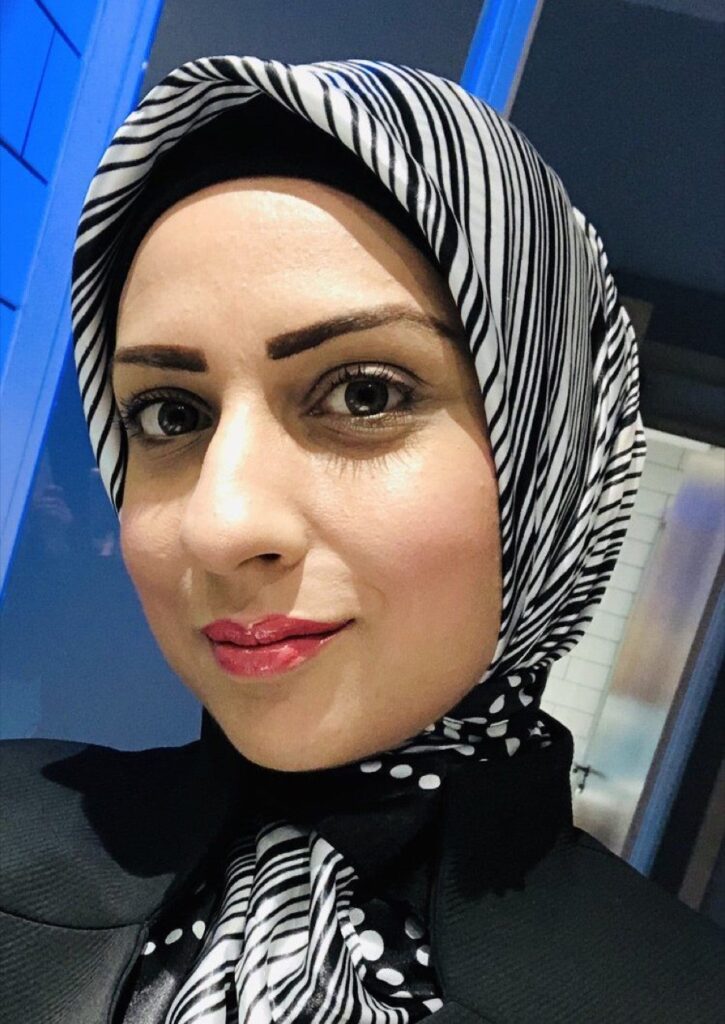A Muslim woman has made British history by becoming the first hijab-wearing judge in the country.
Raffia Arshad, 40, is a powerhouse with a 17-year career behind her, she says she still encounters discrimination and prejudice ‘sometimes on a daily basis’. But she wants young Muslims to know they can achieve anything they put their minds to.
The Midlands-based judge, who grew up in West Yorkshire, experienced one of the most profound moments of her working life when she was advised by her own family member to not wear her hijab to an interview for a scholarship at the Inns of Court School of Law in 2001.
Her chances of success would dramatically decrease if she wore it, her relative warned her – but Raffia refused to bow to pressure.
She said: “I decided that I was going to wear my headscarf because for me it’s so important to accept the person for who they are and if I had to become a different person to pursue my profession, it’s not something I wanted.
“Recently, an usher asked: ‘Are you a client?’ ‘No I’m not.’ ‘You must be the interpreter?’ ‘No I’m not.’ ‘Are you here on work experience?’ ‘No, I’m actually the barrister’.”
“So I did, and I succeeded in the interview. I was given a considerable scholarship. I think that was probably one of the most profound first steps in my career. It was a solid ‘yes, you can do this’.”
After training in London, Raffia was called in 2002 and received pupilage in Nottingham, joining St Mary’s Family Law Chambers in 2004.
Nearly 30 years later, she is not only a successful barrister, but was appointed a Deputy District Judge on the Midlands circuit last week.

The latest figures from judges who declared their information to the Judicial Office show that, of 3,210 in courts across England and Wales, only 205 (6%) are from a BAME background. Only 1,013 (31%) are women, as of April 1, 2019.
The mum-of-three says she now wants ‘to make sure the sound of diversity is heard loud and clear’.
She said: “It’s definitely bigger than me, I know this is not about me. It’s important for all women, not just Muslim women, but it is particularly important for Muslim women.”
But while her success speaks for itself, she says she still sometimes gets mistaken for a client or interpreter when walking into a courtroom.
“Recently, an usher asked: ‘Are you a client?’ ‘No I’m not.’ “You must be the interpreter?’ ‘No I’m not’ ‘Are you here on work experience?’ ‘No, I’m actually the barrister’.
“I have nothing against the usher who said that, but it reflects that as a society, even for somebody who works in the courts, there is still this prejudicial view that professionals at the top end don’t look like me.”
She added: “I think one of the things that holds women back is Imposter Syndrome. There are many times I’ve been in a courtroom and I suddenly think: ‘Am I good enough?’”
With discrimination rife in some parts of society, Raffia believes that young Muslims will be inspired to follow their dreams if they see more people who look like them in every profession.
She said: “The judicial office are doing their utmost to promote diversity and at the time they appointed me they didn’t know I was going to be one of the few hijab-wearing judges out there. I’ve been appointed on merit, not because I wear a hijab.
“But now it’s up to me to be that voice for them, to make sure the sound of diversity is heard loud and clear and that it gets to the appropriate places.”















